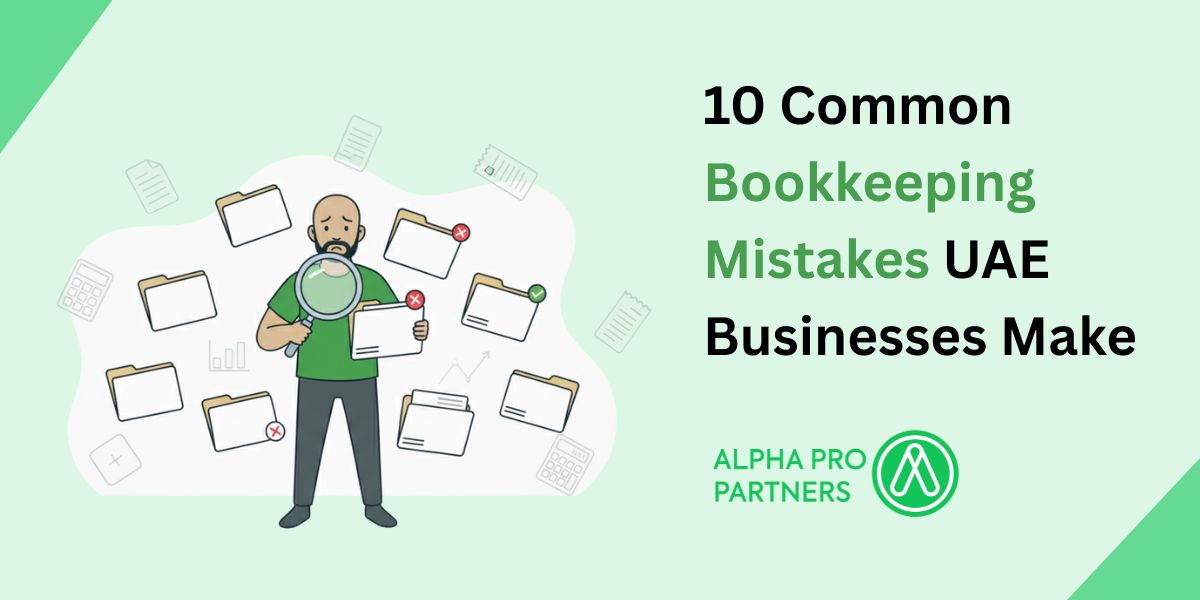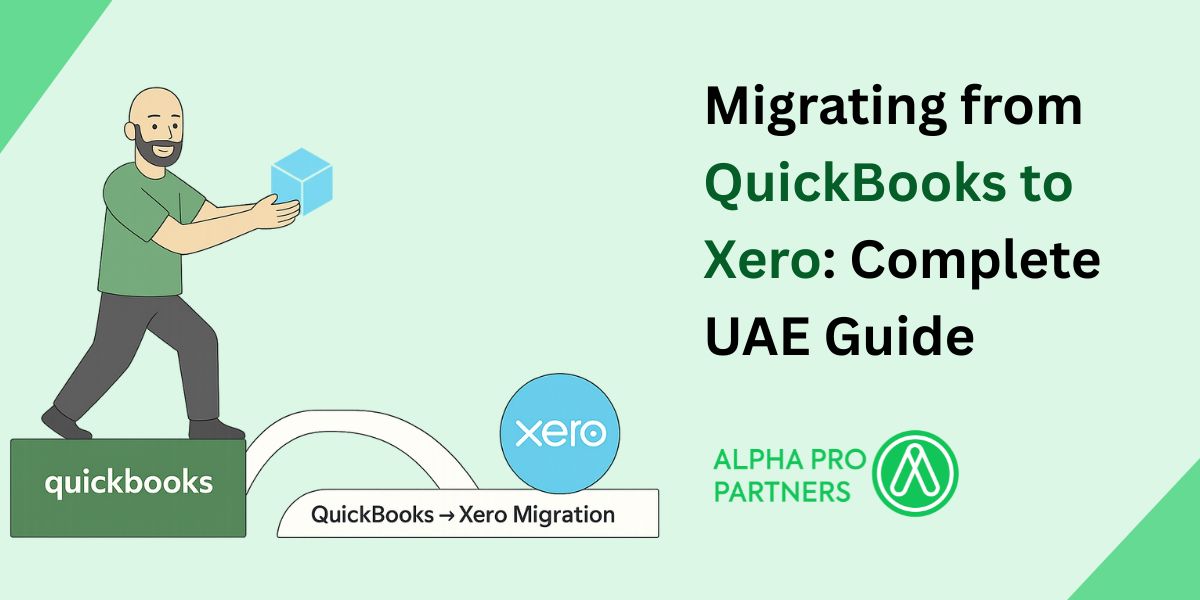Tips for Small Businesses to Prepare for VAT in the UAE

VAT or value-added tax is something that most small businesses operating in the UAE have difficulty managing. These entities are not able to keep track of the latest VAT rules and organize their returns accordingly.
This puts a lot of management and financial burden which can be avoided if these small businesses pay attention to the proper VAT preparation.
If your business is prepared for the VAT and has a trusted VAT service by its side, it can make the whole process much easier and risk-free.
The VAT concept was introduced in the UAE in 2018. However, this tax has been already in place in more than 193 countries in one form or another. This means small businesses in these regions have been preparing for this tax for decades and you can also take a page from their book to ensure compliance.
This blog lists some of the most effective tips that small businesses can use to better prepare for value-added tax in the UAE to ensure long-term growth so keep on reading to learn more.
- Understanding VAT Rules and Regulations
- Accurate Financial Record Keeping
- Proper Cash Flow Management
- Timely and Accurate VAT Registration
- Proper Staff Training
- Seeking Professional Assistance

Following are some of the most effective ways small businesses in the UAE can prepare for the VAT
- Understanding VAT Rules and Regulations
The most important thing to prepare for VAT for small businesses is to learn about the basic VAT rules and their implications. These entities can hire expert VAT services to help them with these rules.
There are some instances where a business doesn’t have to register for VAT as it might not fall in the eligible category. In other cases, some businesses can voluntarily register for VAT to get additional benefits.
For example, if such businesses are paying more than VAT collected, they can get repayment from the government.
Moreover, not knowing all the key VAT rules can lead to violations which opens you up for fines and even business license suspension. All these issues are avoidable only when small businesses take the time to learn the basic VAT rules.
Following are some VAT rules that small businesses must take into consideration
- VAT refers to an indirect tax that is levied on certain goods and services at a standard rate of 5% at every stage of the supply chain.
- If the taxable supplies of a business exceed AED 375,000 in the past 12 months, they must register for VAT (mandatory registration).
- If the income or taxable supplies of a business are less than AED 375,000 but more than AED 187,500, they can register for the VAT voluntarily (voluntary registration). This is advantageous for small companies that incur significant input tax. These businesses can reclaim the credit which improves their cash flow.
- Certain supplies such as education, healthcare, and residential property rentals are exempt from VAT.
- Exports, international transportation, sale of bare land, etc. are subject to 0% VAT. However, these supplies are included in VAT calculations.
- Accurate Financial Record Keeping
Accurate record-keeping when it comes to sales, purchases, expenses, and other financial transactions is extremely important for any business that is planning VAT preparation. Such businesses can use accounting software or bookkeeping systems to record business, private, and other expenses with ease.
Computerized systems can help small businesses calculate their VAT returns very quickly and accurately. For example, Xero, a cloud-based accounting system, is an effective tool designed specifically for SMEs to handle their finances to ensure full VAT compliance.
Also, record keeping is a statutory requirement in the UAE where every business must keep this information for a minimum of 6 years. This helps them give this data to regulatory authorities in case of investigations.
Moreover, it is also a legal requirement to issue VAT invoices to customers which further makes record-keeping important for small businesses.

- Proper Cash Flow Management
Proper cash flow management is also a must if a small business is to show full VAT compliance. These businesses typically have to file their VAT returns quarterly at a rate of 5% of their total revenue in this period.
Small businesses that are particularly cash-strapped have to be extra careful when handling their cash flow. These businesses must prioritize VAT payments above all else if they are to remain operational.
VAT collectors in the UAE have powers to shut down businesses that fail to show VAT compliance which is why every small business must manage their cash flow while taking VAT payments into consideration.
- Timely and Accurate VAT Registration
Every business that plans on registering for VAT has to file its VAT returns with the FTA quarterly and in some cases monthly if the business is large enough and is generating more revenue. The VAT return must contain accurate details of your taxable supplies, input tax, and net VAT liability.
Failure to meet the deadlines or inaccurate record-keeping can lead to hefty fines as well as the cancellation of your business registration.
Small businesses can outsource this task to a VAT expert service to ensure the information filed to the VAT collectors is accurate. The submission of incorrect records results in wrong VAT assessments which can lead to various disruptions down the line.

- Proper Staff Training
Small businesses that have just started out in Dubai must train their staff about VAT and its implications. Your staff must have the necessary knowledge about this subject to help them better explain to the customers as well as suppliers the requirements of the VAT as well as its effects on business transactions.
This training will also help them ensure accurate record keeping as well as the collection of the correct documentation. It can also guarantee all the goods and services they deal with have the VAT marked up which further facilitates compliance.
- Seeking Professional Assistance
And lastly, businesses can hire a reputable service to help them navigate the complexities of VAT in the UAE. These professionals can use their vast expertise to help these businesses with VAT registration, returns filing, record keeping, and all the other related tasks that mitigate risks and ensure long-term growth.
Conclusion
The right knowledge and preparation can make all the VAT-related processes such as VAT filing, record keeping, registration, etc. much easier. By investing in a reputable VAT management service and employee training businesses can easily show compliance.
Moreover, small businesses can also prepare for VAT better by staying aware of the latest VAT laws and their implications. A solid understanding of the VAT regulations combined with meticulous record keeping can equip every business with the right tools to prepare for their VAT obligations and avoid penalties or fines that result from noncompliance.
You can visit us at Alpha Pro Partners if you are looking for an experienced and professional service to help you with VAT, bookkeeping, accounting, and HR processes for your small business in the UAE.
FAQs
What are the requirements for VAT in the UAE?
Every business whose taxable supplies or imports exceed AED 375,000 must register for VAT on a mandatory basis. Businesses whose taxable supplies exceed AED 187,500 can voluntarily register for VAT.
Can you claim VAT back as a small business in the UAE?
Small businesses registered for VAT can reclaim VAT on purchases in the UAE.
How often do you need to submit VAT returns?
Typically, businesses in the UAE have to submit their VAT returns quarterly i.e., every 3 months.
Do you need an accountant to submit VAT returns?
It is true that an accountant can make your VAT submission quicker and more accurate. However, you can do it yourself as well.
What is the minimum turnover for VAT in the UAE?
The minimum threshold for VAT registration in the UAE is AED 375,000.
How can you calculate 5% VAT in the UAE?
Let’s say the selling price of a product is AED 500. The VAT in this case will be 500 x 5% i.e., AED 25.
What happens when you fail to pay VAT?
Failure to pay VAT can lead to fines in the short term and legal actions or business registration suspension in the long term.
How can small businesses prepare for VAT?
They can do this by hiring VAT experts, ensuring accurate record keeping, and learning more about the latest VAT rules in the UAE.
Who is exempt from VAT in the UAE?
The supply of bare land, financial services, residential real estate, transportation, educational, or medical facilities are exempt from VAT.
How can small businesses lower their VAT bill?
They can do this by reclaiming VAT on eligible purchases such as office supplies, equipment, etc.

.webp)







%20Widgets%2C%20Shortcuts%20%26%20Customisation.jpg)







.webp)
.webp)


.png)
.png)
.png)
.png)
.png)

.png)
.png)



.png)
.png)





.jpg)


.jpg)





.png)
.png)






.png)


